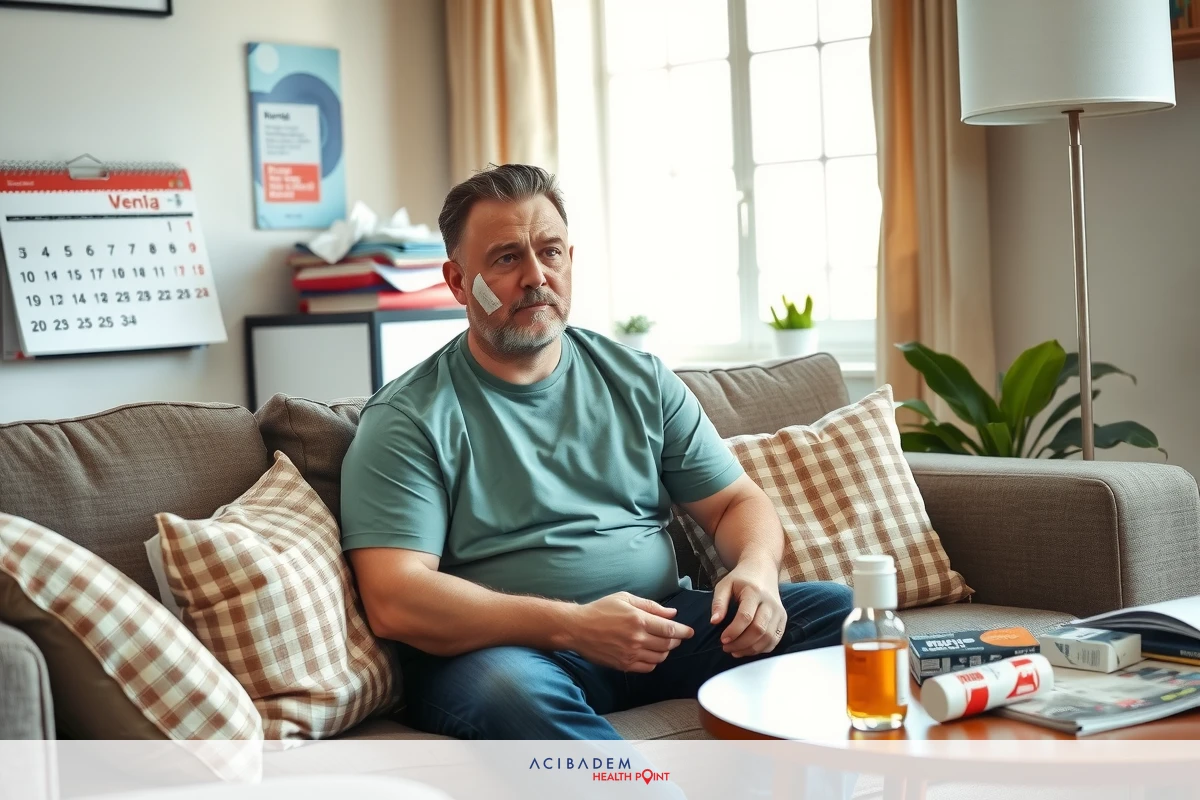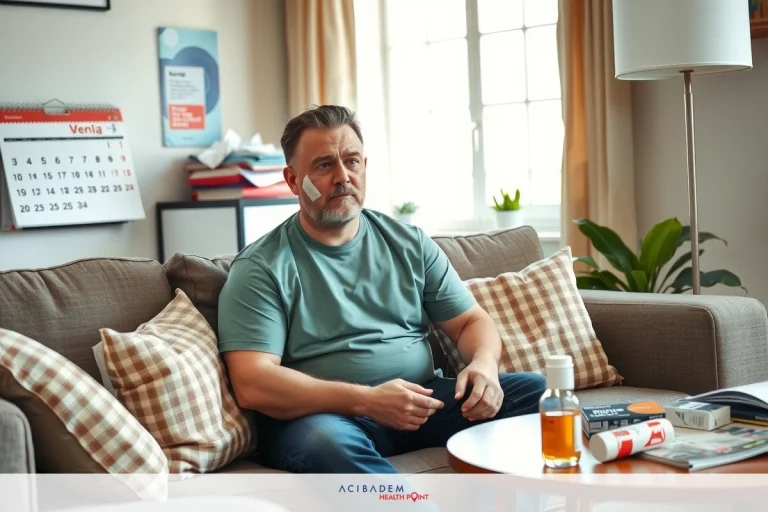Is Quitting Smoking for a Week Before Rhinoplasty OK
Is Quitting Smoking for a Week Before Rhinoplasty OK Rhinoplasty, the reshaping of one’s nose, calls for careful preparation. In particular, those who smoke might ponder on this question – ‘Is quitting smoking for a week before rhinoplasty okay?’ This query is more than valid considering the profound impact that smoking can have on surgical outcomes.
Abstaining from tobacco use even if just one week prior to surgery can offer several advantages. It helps enhance the body’s ability to heal post-surgery and minimizes potential complications. On the flip side, continuing with nicotine intake could potentially jeopardize your recovery process after rhinoplasty.
Beyond these risks and benefits lies an array of practical tips to successfully quit smoking before surgery. Navigating this journey may be challenging but it is doable with suitable support and guidance. Embarking on your rhinoplasty journey requires meticulous preparation – remember, every small step towards healthier habits counts!
Benefits of Quitting Smoking Before Rhinoplasty
Quitting smoking, particularly before a surgical procedure like rhinoplasty, is pivotal in ensuring a positive surgical outcome. It’s no secret that smoking compromises lung function and blood circulation – two critical factors for successful surgery and recovery. When you quit smoking even just one week prior to your rhinoplasty procedure, it allows your body to start restoring these functions thereby setting the stage for an optimal surgical environment. Additionally, nicotine constriction of blood vessels can lead to poor wound healing post-surgery; hence cutting out nicotine use can significantly alleviate this risk.
In addition to physical health improvements, quitting tobacco use also contributes positively towards mental preparation for your rhinoplasty surgery. The decision to stop smoking signifies a commitment towards better health practices which could boost one’s confidence and readiness in facing the impending operation. Moreover, surgeons often view patients who have taken proactive steps such as quitting smoking favorably since it portrays their dedication to achieving the best possible results from their surgery.
While quitting smoking at any point benefits overall health tremendously, doing so specifically before undergoing rhinoplasty offers distinct advantages related directly to the precision required in nasal surgeries. For example, improved oxygenation levels (a result of abstaining from cigarette smoke) facilitates tissue repair and reduces chances of infection during recovery periods after surgery. Furthermore, not being subjected to bouts of coughing associated with smokers’ lungs leads less strain on freshly operated nasal structures thus enhancing stability during healing.
Effects of Smoking on Rhinoplasty Surgery
The detrimental effects of smoking on general health are well-documented; however, its specific implications for rhinoplasty surgery merit separate consideration. Nicotine present in tobacco products severely constricts blood vessels, which can lead to a myriad of complications during and post-surgery. Constricted blood flow hinders the body’s ability to deliver oxygen-rich blood cells necessary for tissue repair and healing— increasing the risk for wound infection, necrosis and compromised results from your rhinoplasty.
Smoking also impairs lung function significantly. The presence of tar in cigarettes leads to reduced lung capacity

making it harder to breathe deeply or cough effectively—an increased challenge when under anesthesia. This raises potential risks during surgery including difficulties with ventilation and prolonged recovery times due to decreased oxygen supply reaching vital organs and tissues. Moreover, impaired pulmonary function can pose additional challenges during the postoperative recovery period where effective breathing exercises are integral for patient mobility.
Continuous exposure to cigarette smoke disrupts skin health adversely affecting surgical outcomes after your rhinoplasty procedure. The toxic substances found in smoke degrade collagen – a protein essential for maintaining skin elasticity – thus leading to premature aging and sagging skin over time. In the context of nasal surgery where precise incisions contribute greatly towards final aesthetic outcome, weakened skin integrity may result in irregular scar formation or even disruption of suture lines that are critical aspects influencing overall satisfaction with your rhinoplasty results.
Tips for Successfully Quitting Smoking
Cigarette smoking can be a tough habit to break, but with motivation and determination, it’s entirely possible. If you’re preparing for rhinoplasty surgery and need to quit smoking even if just for a week prior, here are some effective techniques that could aid your journey. Remember: every small step towards healthier habits counts!
- Set a date: Define when you’ll quit smoking – ideally at least one week before your scheduled surgery.
- Stay active: Regular physical activity produces endorphins which can alleviate nicotine cravings.
- Find alternatives: When the urge strikes, try chewing gum or drinking water instead of reaching for a cigarette.
- Seek social support: Share your goal with friends and family; their encouragement may boost your dedication to quitting.
- Limit triggers: Avoid situations where you would typically smoke like after meals or during breaks at work.
- Practice relaxation techniques: Deep breathing exercises, yoga or meditation can help manage stress often associated with nicotine withdrawal.
- Reward yourself: With money saved from not buying cigarettes, treat yourself to something special!
- Consider Over-the-Counter Aids: Talk to your surgeon before using nicotine patches or gums, as they may impact your surgical results.
- Stay Focused on Your Rhinoplasty Goal: Remind yourself why you’re quitting, visualize how it benefits your surgery and recovery.
Remember that everyone has different experiences when trying to quit smoking—what works best varies among individuals so don’t get disheartened if progress seems slow initially! Stay dedicated on your path towards better health in preparation for successful rhinoplasty results!
Frequently Asked Questions
How long before rhinoplasty should I quit smoking?
Ideally, it's recommended to quit smoking at least a week prior to your surgery. However, the longer you abstain from tobacco products, the better opportunity your body has to prepare and heal.
Can I use nicotine replacements before my rhinoplasty procedure?
While over-the-counter aids like nicotine patches or gums can be helpful in quitting smoking, you should consult with your surgeon first as these products may still have implications on surgical outcomes due to their nicotine content.
What happens if I smoke during the recovery period after my rhinoplasty?
Smoking post-surgery could potentially lead to complications including infections or poor wound healing due its effects on blood circulation and oxygenation levels. Therefore, it's advised that you continue abstaining from tobacco use even after your operation.
Will my surgeon know if I have been smoking prior to the surgery?
Yes. There are medical tests that can detect recent cigarette usage. More importantly though is being upfront about any habits such as this with your surgeon; they're there for help ensure optimal preparation and success of your rhinoplastic journey!











